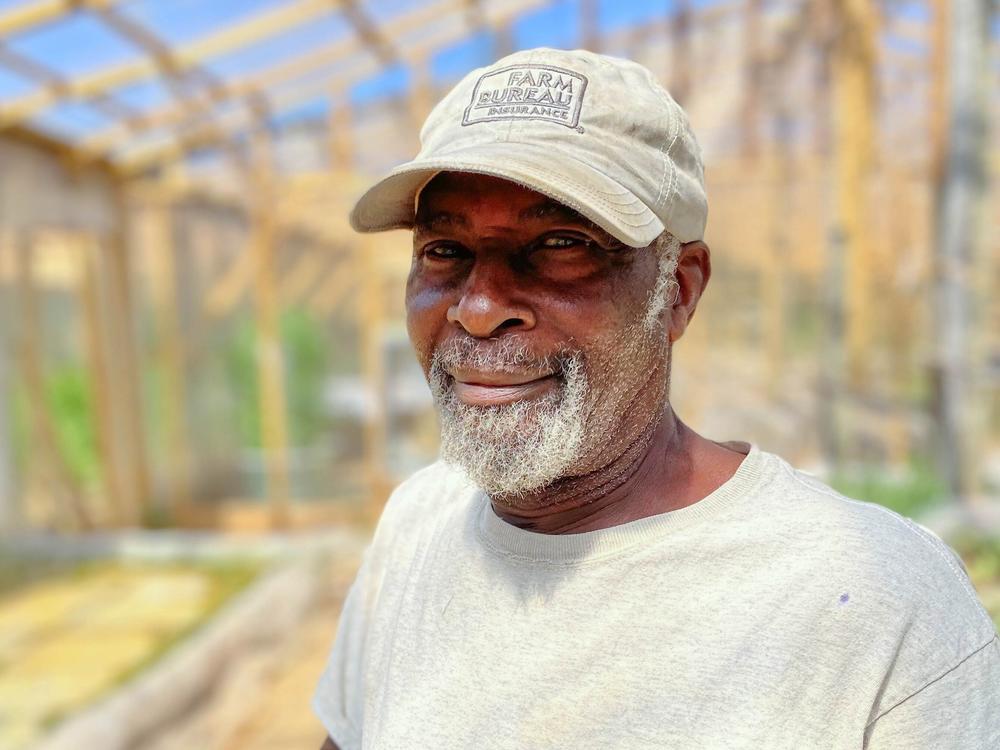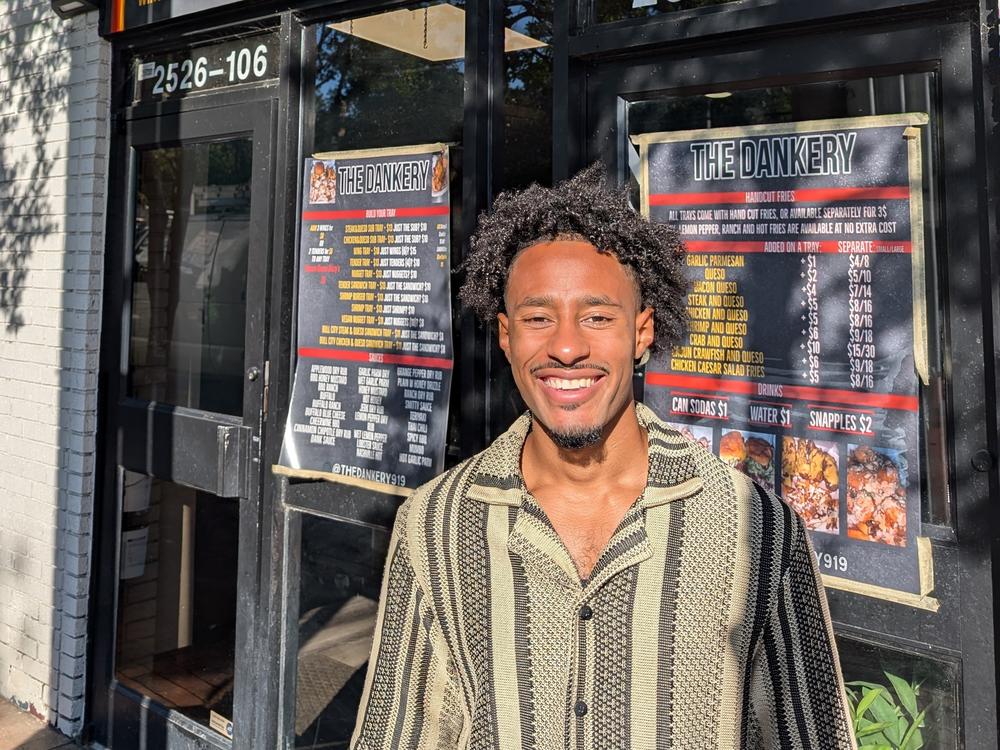Section Branding
Header Content
In one key swing state, both parties are courting Black men
Primary Content
In his 76 years, Phillip Barker has seen many changes in his home state of North Carolina: desegregation, fewer farmers — and a less predictable climate. But, one thing has not changed for him: his commitment to voting.
As a young man, his mother told him, “you gonna vote.”
“She didn’t tell us who to vote for, but she made sure we understood that we had one vote and exercised that. I don’t miss a vote,” Barker said standing alongside some of the crops on his organic vegetable farm in Oxford, N.C.
Barker and other Black men in North Carolina — one of seven swing states — could play a critical role in this year’s presidential election. Polls show both candidates in an extremely tight race. And both parties are making specific appeals to voters like Barker. Democrats are touting policies that benefit Black men, and reminding them of former President Trump’s comments about race and about the 2017 Unite the Right rally in Charlottesville, Va. Republicans are sending Black GOP lawmakers to talk with Black men. They have also tried relating Trump’s felony convictions to Black men — something Phillip Barker rejects. “Who wants felonies? Black people don’t want them!”
As a Black farmer, Barker says he is no stranger to discrimination. He faced years ago when applying for government loan programs.
“When you walk into an office and you realize you're discriminated against when you get to the door, you might really enjoy what you're going in there for, but it makes it miserable by the time you come out,” Barker said.
It took years of lawsuits, but Congress approved more than $2 billion to compensate farmers who were discriminated against by the USDA farm loan program. Compensation is welcome, says Barker, but he keeps thinking about the farmers who died before they could get it.
For this year’s election, Barker points to former President Donald Trump’s record in office, with big corporations getting huge tax cuts and government subsidies for big farmers, not small independent ones like himself.
“I don't know what farmers should vote for him. He didn't take care of any farmers,” Barker said.
Barker has voted mostly for Democrats, but he says he votes for the candidate, not the party. He is not voting for Mark Robinson, the Trump-endorsed GOP candidate for governor, who is Black and has a history of provocative comments about the Holocaust, women, even school shooting victims. “He’s not morally sound,” says Barker.
Barker is supporting Vice President Harris — a potentially historic vote for the country’s first Black woman president. “She brings the experience. I think she have the morals and the heart,” Barker said.
In 2020, according to exit polls – Black men made up about 9% of North Carolina’s turnout, nearly half a million votes. More than 90% of them voted for Joe Biden. But this year, polls show Democrats slipping — not with Barker’s generation, but with younger Black men. The economy is a big reason.
“You used to be able to get a box of chicken wings for 60 bucks maybe 50,” Ian Burris, owner of the Raleigh-based restaurant The Dankery, says. “Now we’re sitting at $130.”
Burris, 28, has been building his business for 9 years — from his parents’ garage to two restaurants in the city.
He says it’s rising costs that make him uneasy. But, as a Black man, those concerns pale in comparison to his experiences during Trump administration.
“There was a lot of racial tension. That was too uncomfortable for me to care about if I’m paying a little bit more in taxes,” Burris says. “I felt like someone could get away with doing something to me.“
For Burris, the choice this year is less about policy and more about personality.
“With Trump, it's hard to take him as a serious politician,” Burris says. “I just think that role should be a serious individual, and I think Harris has the career that says 'serious politician.' ”
That lack of seriousness could cost the GOP the election, if enough young Black voters feel like Burris.
“There's just a lot of cities that are Republican ran, or in Republican states that I admire how things are going,” Burris says. “Some of them are cleaner. Businesses are doing well. The cost of living is a bit cheaper. I do like that idea that you can live in a nice city that has restaurants and things to do and have a decent space and you're not breaking your arm and leg for that. That would be cool to see as an entire country.”
Still, Harris has not sealed the deal with Burris. He says he’s still looking closely at her policy positions and weighing whether he will vote for the vice president.
Melissa Gray, Fernando Narro and Eleana Tworek contributed to this story.


